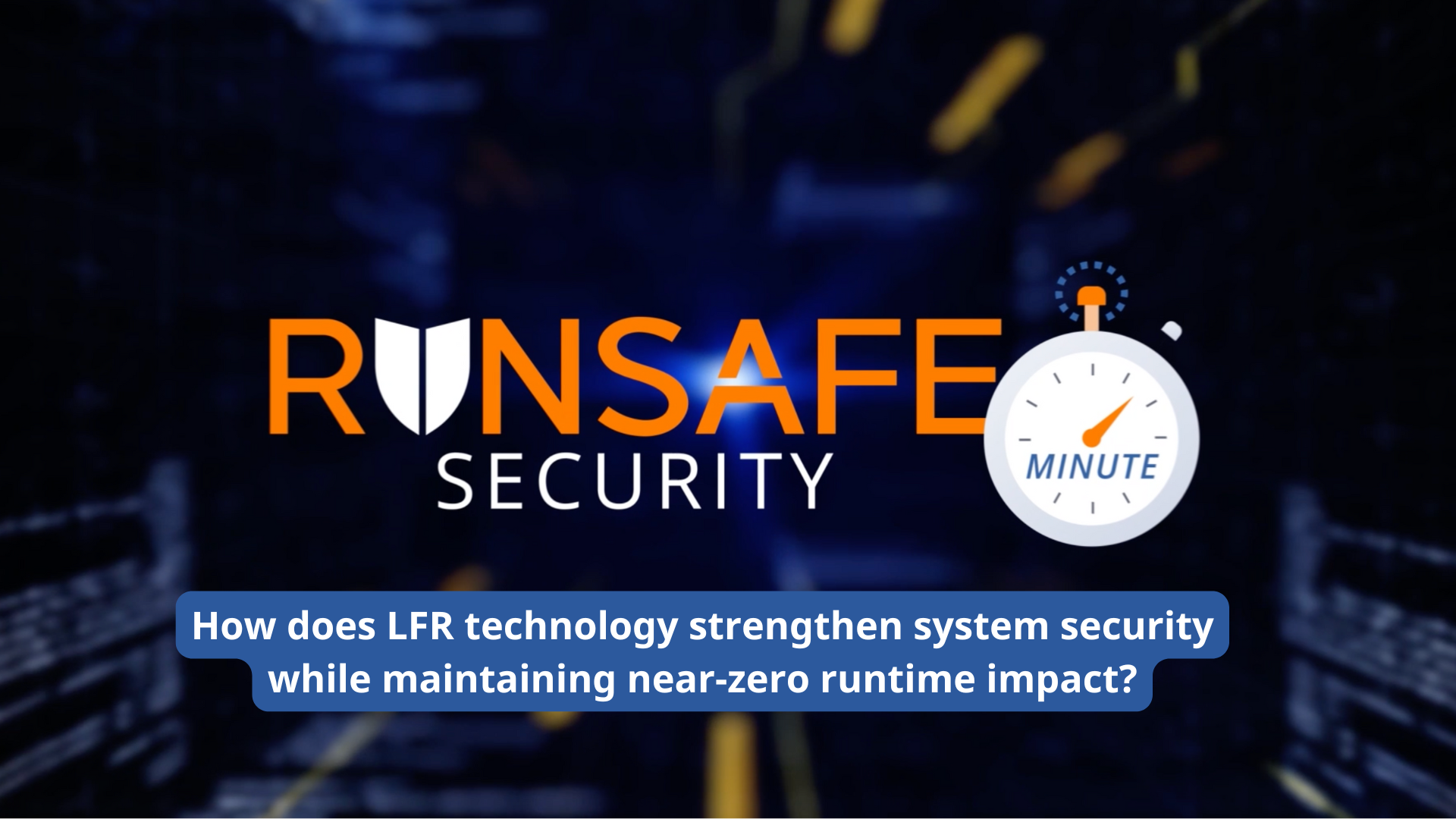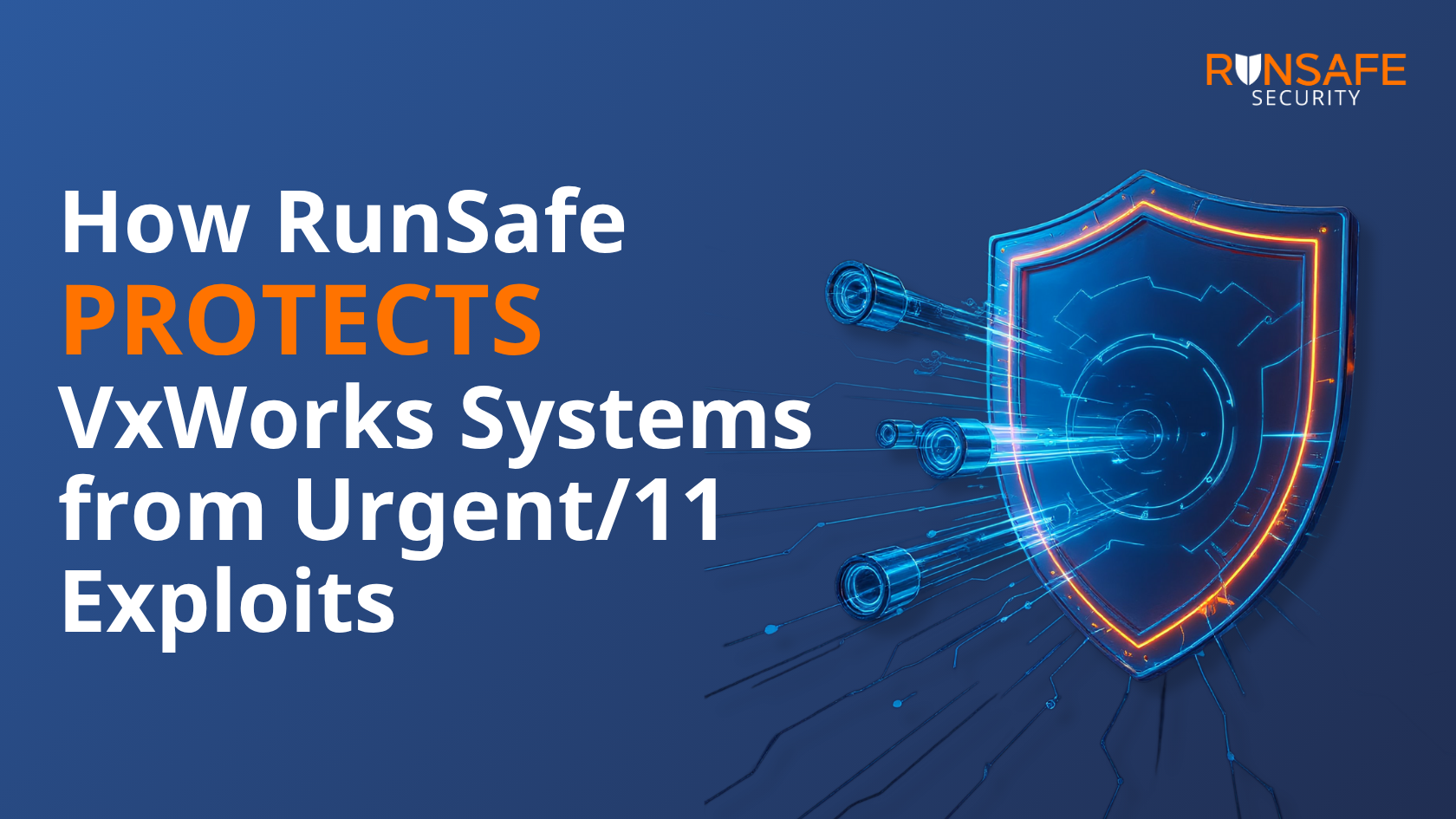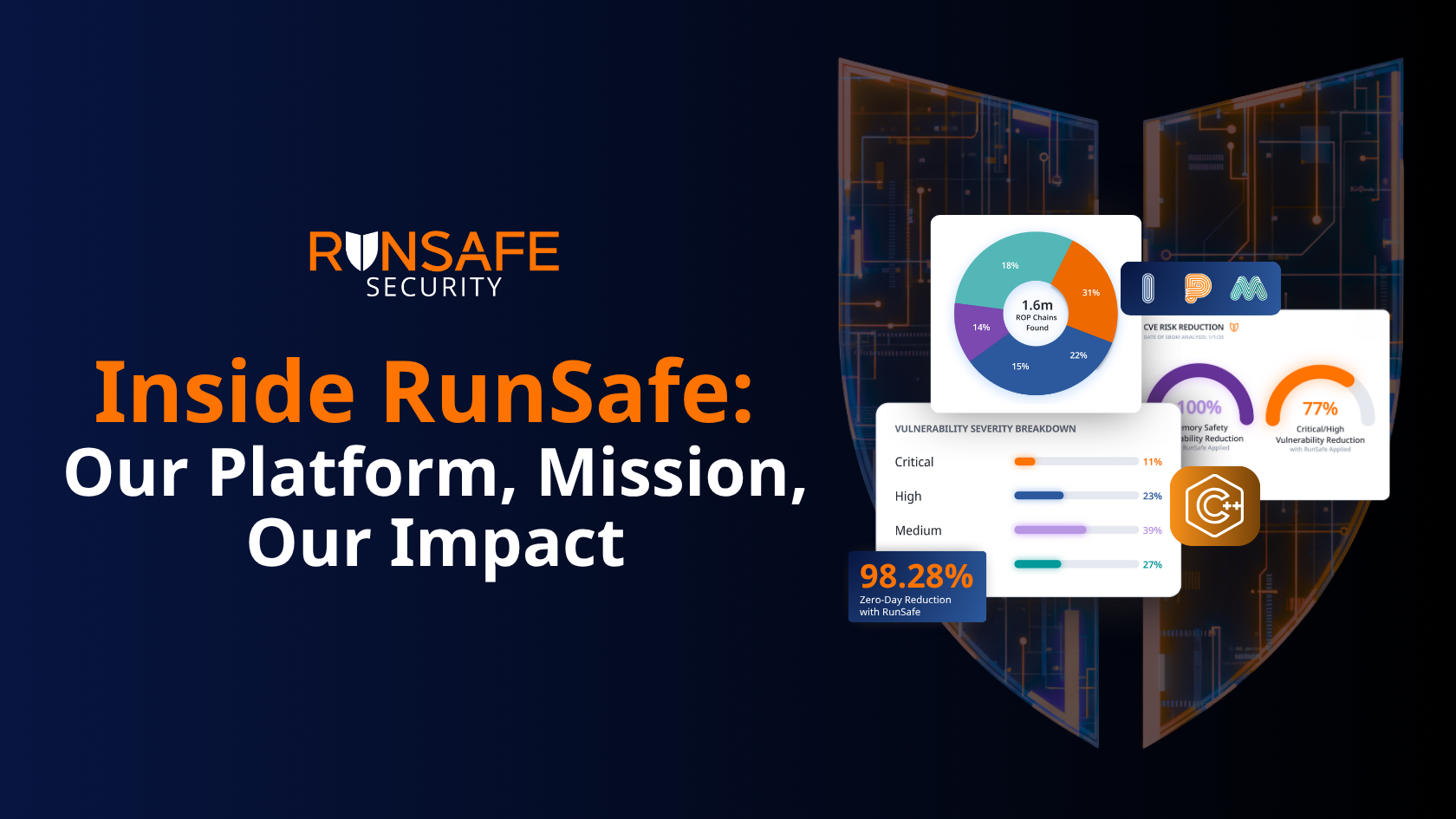How LFR Technology Boosts Security with Minimal Runtime Impact
In this RunSafe Security Minute, we unpack the powerful security benefits of Load-time Function Randomization (LFR) technology. LFR takes system security to the next level by randomizing the memory locations of individual functions within a program, unlike traditional Address Space Layout Randomization (ASLR), which only relocates the entire program to a random memory address. This granular level of randomization makes it exponentially harder for attackers to exploit vulnerabilities based on known memory addresses or leaked information, significantly reducing the chances of successful attacks.
The key advantage of LFR lies in its ability to perform this randomization with minimal impact on system performance. The randomization occurs once at load time, with the system shuffling and relocating functions before execution. Once the program is running, there are no additional runtime costs—meaning your software benefits from stronger protection without sacrificing speed or efficiency. This makes LFR a robust and efficient solution when looking to strengthen defenses without hindering performance.



